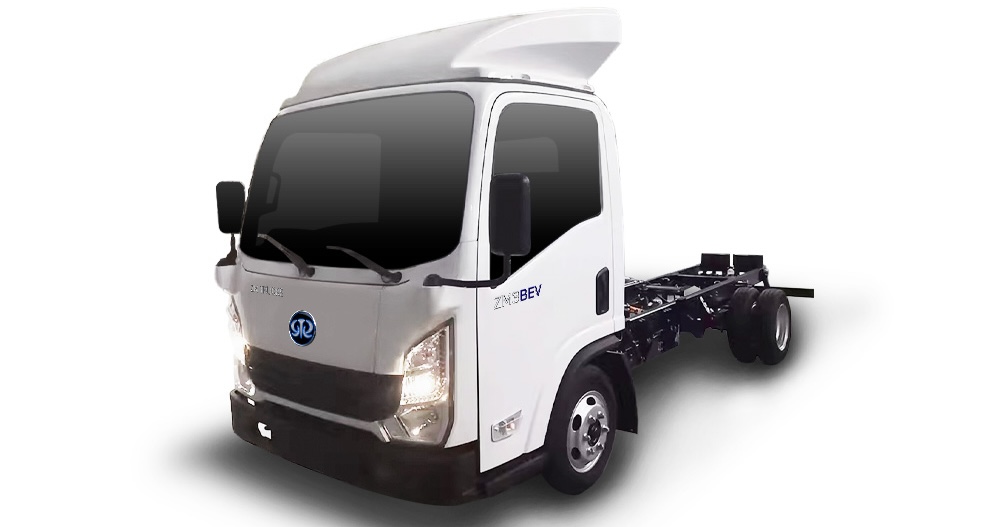
Sign up for daily news updates from CleanTechnica on email. Or follow us on Google News!
Auto industry observers are wondering if Trump advisor Elon Musk still wants to sell Tesla EVs, now that he has found a shiny new toy with which to occupy his time. Be that as it may, time is running out on the Tesla brand. The company suffered a sales drop last year, and the forthcoming Tesla Semi Class 8 electric truck is heading for stiff competition when it finally goes into full production in 2026.
Electric Trucks Are Finally Ready For Their Closeups
As widely reported almost eight years ago, Musk and Tesla unveiled plans for the Semi Class 8 electric truck back in 2017, with production anticipated in 2019.
Early adopter PepsiCo jumped on the chance to reserve 100 of the new trucks, but the beverage and snack maker was still waiting for delivery as Q2 2022 drew to a close. In 2023, a few dozen Semis finally began to trickle in, and in May of 2024, PepsiCo announced plans to add another 50 trucks, finally bringing it to within shouting distance of the 100-truck goal.
For all the delays, Tesla was still doing somewhat better than rival Nikola, which was still on shaky ground as of last year. However, Nikola is not the only competition in the arena.
In a sign of trouble to come, last year the heavy-duty truck makers Daimler Truck North America, Cummins’s zero-emission branch Accelera, and PACCAR (owner of the Peterbilt and Kenworth brands, among others) announced that their new joint venture Amplify Cell Technologies would begin making LFP batteries for electric trucks in Mississippi.
In addition, Toyota launched the TERN Class 8 electric truck in North America last year.
Beyond The Class 8 Electric Truck
When PepsiCo announced the addition of 50 more Tesla Semis to its fleet last year, the company also indicated that Class 8 electric trucks are not the only opportunity for EV makers in the commercial hauling business. The company also let word slip that it was purchasing 75 vans from Ford, which is pitching the E-Transit van to the electric van market.
Another example from the legacy automaking scene is GM. The company has been pushing the electric van envelope through its BrightDrop branch. BrightDrop got off to a slow start, but that could change. Walmart began pilot testing the company’s BrightDrop 400 EV last year. In October, GM reported that Walmart planned to deploy the vehicles in Austin, Dallas, Denver, Detroit, northwest Arkansas, Orlando, and the San Francisco Bay Area.
The Japanese truck maker ZO Motors is taking aim at the whole enchilada. Last year the company announced plans to establish its ZM Trucks branch in the US, focusing on Class 4 and 6 electric vehicles as well as full-sized Class 8 and “baby 8” trucks.
In the latest development, last week ZM announced that it will produce a full slate of electric trucks at a new 210,000 square foot factory in Fontana, California, about 50 miles away from Los Angeles.
ZM expects to start production before the end of Q2 2025, beginning with electric terminal tractors and airport ground equipment in addition to electric trucks.
Another player to watch in the smaller-than-a-semi space is the Israeli startup REE Automotive. In September, the company announced that it has engaged the US firm Roush Industries to assemble a lineup of electric trucks on the REE “P7” platform in Detroit. The factory will produce up to 5,000 trucks per year when running at full capacity.
“Electric vehicles built on the P7 chassis have the industry’s lowest step-in height, are autonomous ready, and can be powered by either batteries or fuel cells,” REE notes.
“The P7 is well established with a network of 78 service and sales locations through 24 authorized dealers across North America with potential access to over 200 fleets in the U.S. and Canada,” they add.
Whatever Happened To The Cybertruck?
Aside from the Semi Class 8 truck, Tesla had an opportunity to dominate the electric pickup truck field when it unveiled the Cybertruck in 2019. The initial outlook appeared solid, but interest has weakened since production began in November of 2023. “More than a million ‘reservations’ have gone poof,” CleanTechnica noted earlier today.
Overall, Tesla continues to lead the US in EV sales, but “cracks are starting to show” in the words of Fortune reporter Amanda Gerut. On February 4, Gerut cited the firm Experian Automotive, which tracked an 11.6% drop in California registrations for Tesla vehicles last year. The company also lost ground against other ZEV makers in California, dropping to 52.5% of ZEV registrations in 2024, from 60.1% the previous year.
This year is shaping up for another round of the same, with Tesla sales cratering here in the US and several other markets in January. This week the company launched a fresh round of referral bonuses and discounts, suggesting that it expects the downturn to continue into 2025 unless it can attract more buyers.
What Will Be America’s Next Top Electric Truck?
The waning interest in Tesla vehicles of any type indicates that the field is wide open. Pickup trucks are extremely popular in the US, whether or not the owner actually intends to pick up anything aside from weekly groceries.
Keep an eye on the US startup TELO Trucks, which is aiming for a kei-inspired compact electric truck for urban markets. Interested buyers can pre-order the pickup with optional solar panels on the cab roof and tonneau cover. The company is also offering a solarized camper shell for additional power generation.
Last month, TELO co-founder and CEO Jason Marks noted that commercial fleets are among the company’s target markets, in addition to drivers looking for a high-functioning vehicle for everyday use and weekend adventuring.
Sure enough, earlier this week, TELO launched a new commercial fleet sales program for its MT1 electric pickup truck, aimed at construction, services, agriculture, and delivery fleets, including those requiring cold storage.
“To guide the program’s development, ensuring the program supports diverse sectors such as construction, manufacturing, agriculture, and mid-mile delivery, TELO has formed a Steering Committee of industry experts familiar with the nuanced challenges logistics and transportation can present,” the company notes.
The MT1 can seat 2–5 passengers depending on the desired configuration, and plans are already in the works to produce an 8-seat option.
Follow me via LinkTree, or @tinamcasey on LinkedIn and Bluesky.
Photo (cropped): The Japanese firm ZO Motors is the latest of a growing list of electric truck makers to set up shop in the US zero-emission vehicle market, through its ZM Trucks branch (courtesy of ZM Trucks).
Chip in a few dollars a month to help support independent cleantech coverage that helps to accelerate the cleantech revolution!
Have a tip for CleanTechnica? Want to advertise? Want to suggest a guest for our CleanTech Talk podcast? Contact us here.
Sign up for our daily newsletter for 15 new cleantech stories a day. Or sign up for our weekly one if daily is too frequent.
CleanTechnica uses affiliate links. See our policy here.
CleanTechnica’s Comment Policy

